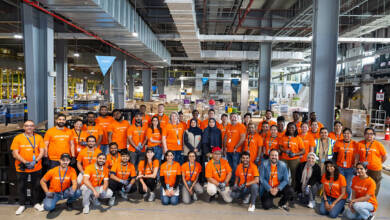Green idea against Covid: Cardboard beds in UAE
Disposable cardboard beds for patients is making its way from India into the UAE
Sleep over it for simple and sustainable ideas to tackle Covid-19. In India, they call it jugaad (a cheap or frugal solution to what life throws at you).
One such idea led to the creation of disposable cardboard beds for patients that can be recycled. The concept is not only helping India in its fight against the deadly virus but is also making its way into the UAE and other countries.
Realizing that there was an acute shortage of beds across India at hospitals as well as quarantine centers, Mumbai resident Rhea Shah, an architect from Harvard, came up with the idea of making low-cost compact cardboard disposable beds that has now helped thousands of patients across India.
Around 3,000 of these 100 per cent recyclable beds have also landed in the UAE and are awaiting the final approvals from authorities before they can be used here.
Rhea’s brother Mihir Shah, who runs Aryan Paper Mill in Gujarat, said his company spent a week to develop a prototype of the cardboard bed and since then has manufactured around 20,000 such beds.
Green idea against Covid: Cardboard beds
Speaking to Khaleej Times from Mumbai, Mihir, said: “This cardboard bed was the brainchild of my sister Rhea, who was to fly to Europe for her PhD but got stuck in India when Covid-19 struck and the lockdown began. Making use of her time and skills, she discussed the idea with me and I thought it was a brilliant way to contribute to our country’s efforts in this fight.”
The disposable beds that are being extensively used at quarantine or isolation centers across the country weigh only 7 kg and can be assembled in under 10 minutes without any screws, nails or adhesive.
Dubai resident Mahesh Kumar, whose company Regent General Trading is the exclusive distributor of the beds in the region, said: “We have about 3,000 beds stocked here and are in talks with the authorities to get the final approvals. Once it is done, we are looking to market them at Dh 100 per bed.”
“The biggest selling point of these cardboard beds are that they can be disposed of in an Eco-friendly manner. Since these beds are made of cardboard, survival chance of the virus on such a surface can be only for 24 hours while on other surfaces such as metal, wood or plastic the virus can stay up to four days. They are quite durable as the cardboard with which they are made of is also chemically coated to resist moisture and can last up to six months or more.
Kumar added that the bed can support a person weighing up to 200 kg and comes in a flat-pack box.
“These days it is important to ensure that everything we use should be sanitized thoroughly. Therefore, using disposable products would be our safest bet to keep this virus at bay.”
Mihir said that his company’s concept has also been recognized by the Prime Minister’s office in India and has featured in India’s top 10 innovations.




